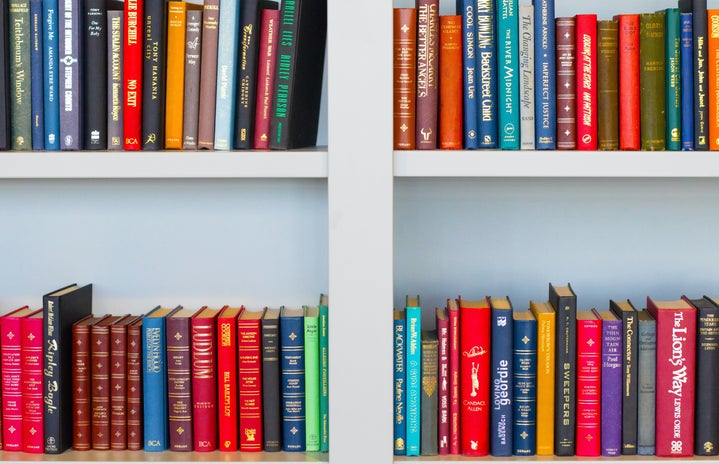If you tell people you study law or physics or theatre, chances are whoever you’re talking to has some preconceived ideas about you. Most subjects have a stereotype.
But for me it’s different. I study linguistics, a somewhat niche degree. And so, I’ve found that when people ask me ‘So, what do you study’ and I reply ‘Linguistics’, I am met with blank stares. People can usually guess that it has something to do with languages but I’ve met very few who actually know what it is.
Linguistics is great but it’s also very broad. I’ve had lectures on concepts from literature to statistics to aerodynamics (yes, honestly). So, whenever I get the inevitable follow-up question ‘Oh what’s that about?’ I’m never quite sure how to answer without launching into a much longer speech than the friendly taxi driver or obscure great-aunt was expecting.
With that in mind I thought I’d put together a list of my favourite ‘Pop Linguistics’ books. All of these have been written to be accessible and they give really interesting overviews of different aspects of linguistics.
5. Anything written by David Crystal
(Image from Americanbookwarehouse)
For the number five spot in my list I asked around a couple of my course friends. The consensus was clear that any list of pop Linguistics books had to include David Crystal. Crystal is an honorary professor of Linguistics at Bangor university and has written extensively on language.
I’d put money on the majority of people on my course having read his, ‘The Cambridge encyclopedia of the English language’ at some point. The writing is assessible and broad, making this a perfect intro into Linguistics. If you want something more specific, Language Death documents the plight of minority languages around the world and makes the argument for preserving them. Or if you’re more inclined to the literary side of language there’s always ‘Shakespeare’s Words: A Glossary and Language Companion’. Can’t go wrong with Crystal!
4. Babel No More by Michael Erard
Just a disclaimer, often when you tell someone you study Linguistics they reply ‘So, how many languages do you speak?’. This question is ever so slightly annoying – we do not all speak loads of different languages. We study ‘Language’ as a whole, it’s completely different from a French or Spanish degree. Now we’ve gotten that out of the way – here’s a book about people who speak loads of languages.
Learning a foreign language to a high standard takes years and a lot of mental effort. But there is a growing community of people known as ‘hyperpolyglots’ who speak a ridiculous number of languages. In this book Erard interviews the world’s most multilingual people and explores what it takes to be a super-language-learner.
This book is offers a unique look at the upper limits of what the human mind is capable of. How many languages is it truly possible to know?
Quote: “the spoken thought feels as if it’s closer to its source in the brain.”
(Image from Goodreads)
3. Is That a Fish in Your Ear? by David Bellos
This one’s all about translation. You come to realise the topic of translation is deceptively simple as Bellos takes you through the intricacies involved all aspects of the topic. Can poetry ever really be translated? If something’s funny in one language, how do you make it funny in another? Plus, an exploration of the unbelievable skill of the simultaneous interpreters who facilitate communication between world leaders.
Also, the title is a reference to the babel fish from Douglas Adam’s Hitchhikers Guide to the Galaxy. A little fish that you put in your ear and it translates everything for you. Despite being a big Adam’s fan, I only realised the title was a reference when I’d almost finished the book – I was more than a little annoyed with myself.
(Image from Penguin)
2. The Etymologicon: A Circular Stroll through the Hidden Connections of the English Language by Mark Forsyth
Etymology is the study of the origins of words, a subject author Mark Forsyth obviously knows far too much about. He’s a genuinely funny writer who takes you on a tour of the history of the English language.
Sometimes people will have vague conversations like ‘isn’t it weird that we say X ‘ or ‘why do we call that Y’. Well, this book will tell you. So, if you give this book a read, the next time you see someone eat an avocado you can confidently tell them that ‘avocado’ comes from an Aztec language word for ‘testicle’.
Quote: ““Freud said that everything was secretly sexual. But etymologists know that sex is secretly food.”
(Image from nudge-book)
1. Planet Word by J. P. Davidson
This one made it to my number 1 for a reason, I absolutely love this book. The author starts from the premise that language is the most fascinating thing on the planet and by the end of the book you’ll be in complete agreement. If ever my degree starts stressing me out and I end up in that familiar spiral of ‘what’s the point of all this’ – it only takes a few pages of this book to fall back in love with the subject.
Davidson manages to cover an impressive range of topics, if something is interesting about language then this book touches on it. He writes about everything from the speculative origins of human language all the way up to modern internet slang and beyond. Monkeys, clay tablets, secret codes, and invented languages – there’s not a single page of this book that isn’t completely enthralling.
Bonus: Back in 2011, Planet Word was turned into a five-part documentary series hosted by Stephen Fry which is definitely worth a watch.
(Image from thecultureconcept)

